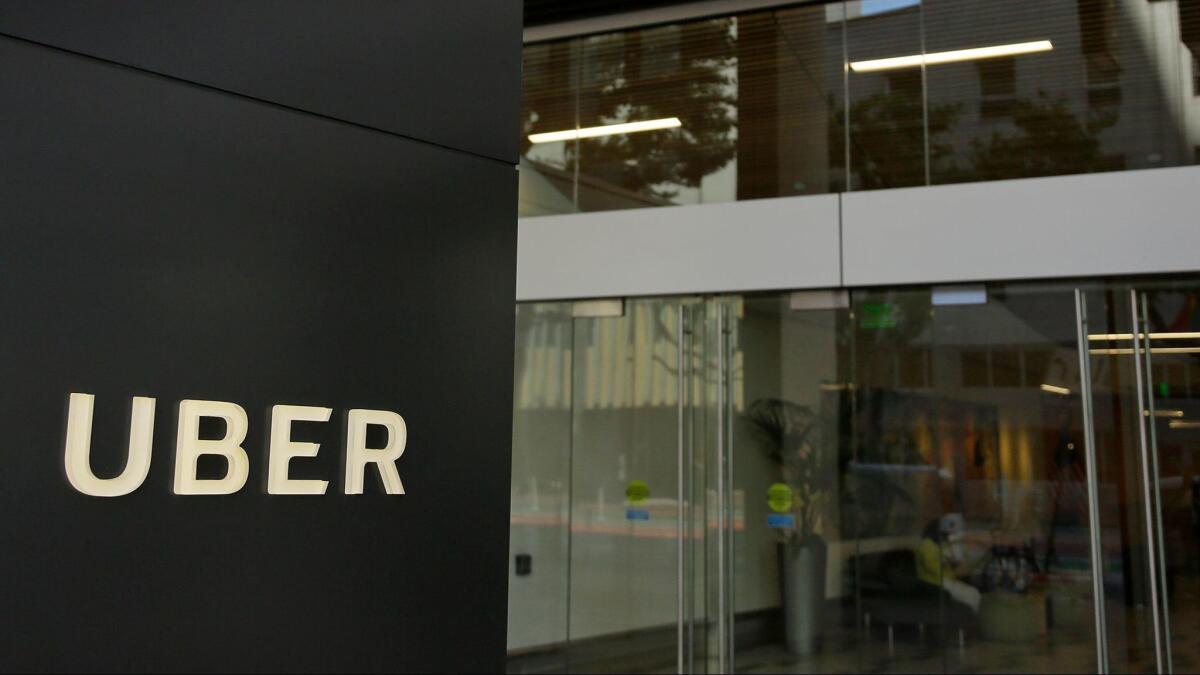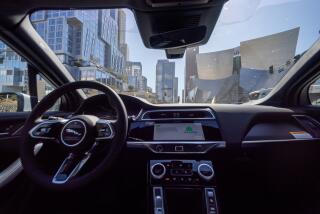Waymo seeks $2.6 billion in damages from Uber for alleged use of one trade secret

- Share via
Reporting from San Jose — With three weeks to go until the explosive Waymo vs. Uber trial begins, court-watchers got a peek Wednesday at the hefty price tag Uber could face if it loses.
Waymo is seeking $2.6 billion in damages for just one of the nine self-driving car trade secrets it claims Uber put to use, lawyers disclosed at a hearing in federal court in San Francisco. It’s a number that underscores the importance of the technology that’s at the heart of the legal battle, as both rivals race to stake their claim in the burgeoning autonomous vehicle market.
The estimated value of the other eight trade secrets hasn’t been made public.
The damage estimate came out as Waymo’s lawyers on Wednesday bolstered their case with new, last-minute evidence showing that thousands of confidential Waymo files ended up on the personal computer of a top-level Uber engineer.
Citing a report they got their hands on last week after months of trying, Waymo’s lawyers say they’ve found evidence that all but seven of the 14,000 confidential files they’re accusing Uber of possessing were once on former Uber engineer Anthony Levandowski’s personal computer. Levandowski, who once worked for Waymo, downloaded the files to his Waymo computer Dec. 11, then three days later, plugged a card reader into that computer for eight hours, according to Waymo’s lawyers. They say those files then showed up on Levandowski’s personal computer, but were deleted the same day.
Waymo claims Levandowski took 14,000 confidential Waymo documents before leaving to found self-driving trucking start-up Otto. Uber then bought Otto, which Waymo claims gave Uber access to those pilfered Waymo trade secrets. Levandowski ran Uber’s self-driving car program before the San Francisco-based ride-hailing company fired him in May amid the allegations.
Last week, a panel of federal appellate judges ruled Uber must turn over a due-diligence report — and thousands of related documents — that Uber commissioned before it bought Otto. That report, and what it revealed about Levandowski’s downloading history, was the highlight of Wednesday’s hearing.
Uber’s lawyers argued that Levandowski could have downloaded the Waymo documents accidentally — when an employee first accesses Waymo’s computer network, documents are automatically downloaded to his or her computer.
Waymo’s lawyers on Wednesday also asked U.S. District Judge William Alsup to delay the trial until Dec. 5, to give them more time to go through Uber’s due-diligence report. But Alsup was reluctant to push back the trial’s current Oct. 10 start date, and said he won’t make a final decision until Oct. 3.
Kendall writes for the Mercury News/McClatchy.
More to Read
Inside the business of entertainment
The Wide Shot brings you news, analysis and insights on everything from streaming wars to production — and what it all means for the future.
You may occasionally receive promotional content from the Los Angeles Times.










